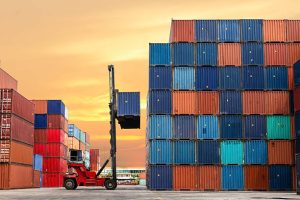Maximizing Savings: A Comprehensive Guide to Optimizing Your Supply Chain
Scope For This Project
The successful achievement of $X million in annual savings through bulk supply chain improvements is a significant accomplishment for the client. This result indicates that the recommendations and business transformation efforts implemented by the consulting team were effective and impactful.The achievement of the client’s goals is a key measure of success for any consulting project. In this case, the $X million in annual savings indicates that the consulting team was able to deliver on the client’s objectives and improve the efficiency and effectiveness of their supply chain.Achieving the client’s goals can have a number of benefits for both the consulting team and the client. For the client, achieving their goals can result in increased profitability, improved competitiveness, and a stronger market position. For the consulting team, achieving the client’s goals can result in a strong reputation, increased client satisfaction, and potential for future business opportunities.
Table of Contents
Demurrage Reduction, Operation Improvement, Fulfillment Optimization, and Export
Supply chain optimization is a critical process that seeks to improve the performance of the entire supply chain by enhancing efficiency and effectiveness. The optimization process involves evaluating and enhancing different elements of the supply chain, including procurement, production, transportation, warehousing, and distribution, among others, to achieve key objectives such as reducing costs, increasing speed, and enhancing customer satisfaction.
It is essential to apply a comprehensive and data-driven approach to supply chain optimization, which incorporates advanced technologies and best practices to improve the flow of goods and information along the entire supply chain. Ultimately, by optimizing the supply chain, businesses can gain a competitive advantage, reduce wastage, minimize inefficiencies, and increase profitability.
What is Demurrage
Demurrage is a fee charged by a carrier or terminal operator for the extra time that a shipment spends beyond the agreed-upon free time for loading or unloading, storage, or other handling. Demurrage is typically charged per day or per hour, and is meant to compensate the carrier or terminal operator for the extra costs incurred due to the extended use of their equipment or facilities. The amount of free time allowed before demurrage starts to accrue varies by carrier and is usually specified in the contract of carriage. Demurrage fees can be significant, and can have a major impact on the cost and efficiency of the supply chain, making it important for supply chain stakeholders to minimize demurrage through effective planning and execution.
How to reduce demurrage
- Improve Planning and Scheduling: Proper planning and scheduling can help to ensure that shipments are loaded and unloaded within the agreed-upon free time. This requires close coordination and communication between all parties involved.
- Streamline Loading and Unloading Processes: Improving the speed and efficiency of loading and unloading processes can reduce the amount of time that shipments spend in transit and in storage, thereby reducing demurrage fees.
- Enhance Cargo Tracking: Real-time visibility and tracking of shipments can help to identify potential bottlenecks or delays that could lead to demurrage. This can also help to proactively address these issues and minimize their impact on the supply chain.
Operation Improvment
Operation improvement in supply chain is a crucial process that involves identifying and improving specific processes and operations within the supply chain to increase efficiency, reduce costs, and enhance customer satisfaction. This can be achieved by analyzing and optimizing different areas of the supply chain, including procurement, production, transportation, warehousing, and distribution.
To improve operations, companies may use new technologies, implement best practices, and leverage data-driven approaches to streamline operations, reduce waste and inefficiencies, and optimize the flow of goods and information along the supply chain. The ultimate goal is to achieve a more efficient, cost-effective, and customer-centric supply chain that supports the overall business objectives.
What is fulfillment optimization
Fulfillment optimization in supply chain refers to the process of improving the speed, accuracy, and cost-effectiveness of the process of delivering goods to customers. This includes optimizing various aspects of order fulfillment, such as procurement, inventory management, transportation, and customer service. Fulfillment optimization may involve using new technologies, data analytics, and best practices to reduce lead times, improve order accuracy, and increase customer satisfaction. By optimizing fulfillment processes, companies can improve their competitiveness, reduce waste and inefficiencies, and increase profitability.
Steps to improve
- Improve Inventory Management: This involves regularly reviewing and adjusting inventory levels to ensure that the right products are available when customers want to buy them.
- Implement Automated Systems: Automated systems can include the use of order management systems, warehouse management systems, and transportation management systems.
- Enhance Data Analytics: Data analytics can improve fulfillment processes by identifying bottlenecks and reducing lead times using visualization tools, predictive analytics, and real-time monitoring.
- Optimize Transportation: Optimizing transportation can help to reduce lead times and improve delivery accuracy. This may involve using multiple transportation modes, such as air, sea, and road, and leveraging technology to optimize routes and schedules.
Collaborate with Suppliers: Collaborating with suppliers can help to ensure that products are available when customers want to buy them, reducing lead times and improving order accuracy.
What Is Export
Export refers to the process of selling goods and services from one country to another. export business depends on a variety of factors, including the competitiveness of the products being exported, the stability of the target market, and the effectiveness of the export marketing and distribution strategies.
The benefits of exporting are many. It allows companies to diversify their customer base and reduce their dependence on a single market. By exporting to multiple markets, companies can also benefit from economies of scale and increased production efficiency. Exporting can also provide access to new and innovative technologies, as well as new sources of raw materials and components.
Exporting can be done through a variety of methods, such as direct exports, indirect exports, and government-to-government sales. Direct exports involve a company selling its products or services directly to a customer in another country. Indirect exports involve the use of intermediaries, such as trading companies or agents, to facilitate the sale of goods or services to customers in another country. Government-to-government sales involve the sale of goods or services to a foreign government.
Logistical challenges in exporting can include the transportation of goods, storage, and documentation. Exporters must ensure that their products are properly packaged and labeled, and that all necessary documentation, such as invoices and customs declarations, are in order. They must also ensure that their products are transported safely and efficiently to their destination.
To overcome these challenges, companies can enlist the help of freight forwarders and customs brokers, who specialize in the logistics of international trade. Additionally, some governments offer support to companies looking to export, such as providing information and assistance with regulatory compliance.
Steps to improve export
- Conduct Market Research: Identify potential target markets and understand the needs, preferences, and buying patterns of customers in those markets.
- Comply with Regulations: Familiarize yourself with the regulations and procedures required for exporting, including tariffs, customs, and trade agreements, and ensure that your products comply with all relevant regulations.
- Build Relationships with Buyers: Establish strong relationships with potential buyers, distributors, and other key stakeholders in target markets
- Invest in Logistics and Transportation: Invest in logistics and transportation solutions that support timely and cost-effective delivery of goods to customers.
Foster Good Will: Foster good will with customers by providing excellent customer service and support, and by building a positive reputation for quality and reliability
Conclusion
Supply chain optimization involves a data-driven approach that leverages technology and best practices to improve the efficiency and effectiveness of the entire supply chain.
Demurrage is a hidden cost charged for the extra time that a shipment spends beyond the agreed-upon free time for loading or unloading, storage, or other handling. Proper planning, streamlined loading and unloading processes, enhanced cargo visibility and tracking, and minimized bottlenecks can reduce demurrage.
Operation improvement involves identifying and optimizing various processes and operations within the supply chain to increase efficiency, reduce costs, and improve customer satisfaction.
Fulfillment optimization involves improving the speed, accuracy, and cost-effectiveness of the process of delivering goods to customers.
Export involves selling goods and services from one country to another. Collaborating with suppliers, enhancing data analytics, and optimizing transportation can reduce lead times and improve delivery accuracy.
About the Author
 Vivek Sood: Sydney based managing director of Global Supply Chain Group, a strategy consultancy specializing in supply chains. More information on Vivek is available on www.linkedin.com/in/vivek and more information on Global Supply Chain Group is available www.globalscgroup.com
Vivek Sood: Sydney based managing director of Global Supply Chain Group, a strategy consultancy specializing in supply chains. More information on Vivek is available on www.linkedin.com/in/vivek and more information on Global Supply Chain Group is available www.globalscgroup.com
Vivek is the Managing Director of Global Supply Chain Group, a boutique strategy consulting firm specialising in Supply Chain Strategies, and headquartered in Sydney, Australia . He has over 24 years of experience in strategic transformations and operational excellence within global supply chains. Prior to co-founding Global Supply Chain Group in January 2000, Vivek was a management consultant with top-tier strategy consulting firm Booz Allen & Hamilton.
Vivek provides strategic operations and supply chain advice to boards and senior management of global corporations, private equity groups and other stakeholders in a range of industries including FMCG, food, shipping, logistics, manufacturing, chemicals, mining, agribusiness, construction materials, explosives, airlines and electricity utilities.
Vivek has served world-wide corporations in nearly 500 small and large projects on all continents with a variety of clients in many different industries. Most of projects have involved diagnostic, conceptualisation and transformation of supply chains – releasing significant amount of value for the business. His project work in supply chain management has added cumulative value in excess of $500M incorporating projects in major supply chain infrastructure investment decisions, profitable growth driven by global supply chain realignment, supply chain systems, negotiations and all other aspects of global supply chains.
Vivek has written a number of path breaking articles and commentaries that are published in several respected journals and magazines. Vivek has spoken at several supply chain conference, forums and workshops in various parts of the world. He has also conducted several strategic workshops on various aspects of supply chain management. He received his MBA with Distinction from the Australian Graduate School of Management in 1996 and prior to these studies spent 11 years in the Merchant Navy, rising from a Cadet to Master Mariner.
More information on Vivek is available on www.linkedin.com/in/vivek and more information on Global Supply Chain Group is available on www.globalscgroup.com
Related Posts
Click below to see related posts.

The Impact of Plummeting Shipping Container Prices Across Industries
Explore the far-reaching consequences of plummeting shipping container prices on diverse industries, revealing the intricate connections shaping global trade, supply chains, and economic landscapes.

Race Day Logistics: Intricacies of Pit Stop
Explore the race day’s heartbeat: the art of pit stops. Uncover the intricate logistics orchestrating split-second tire changes, refuels, and strategy adjustments that define Formula 1’s high-speed drama.

Mastering Travel Logistics in Formula 1 Racing
Discover the art of flawless travel logistics in the high-speed world of Formula 1. Uncover how precision planning and real-time coordination keep teams on track across the global circuit.
